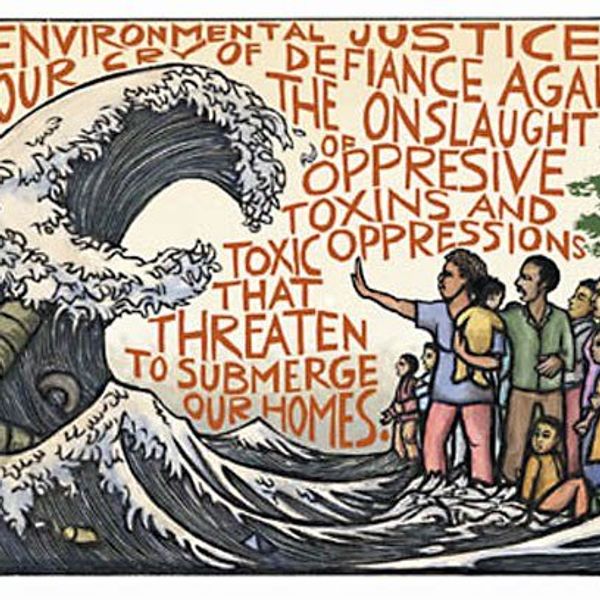Beginning in 2014, Flint, Michigan, brought public concern over environmental safety to national news headlines and living room conversations across the United States. When residents throughout Flint were affected by the failure of local and state governments to protect citizens from potentially harmful water , the disparity between the wealthy and poor communities of Flint was emphasized in this time of city-wide crisis. Critics claim that the “water crisis” developed largely undetected by government officials because the city of Flint is majority black and 40 percent below the federal poverty line. The unfortunate truth is that this interpretation of the purposeful neglect of poor communities of color is not an uncommon phenomenon. In fact, urban spaces that operate on the institutions of racism and classism contribute to environmental inequality on the neighborhood scale in multiple ways.
Lead poisoning, which is allegedly the cause of the illness spreading throughout Flint, is more prevalent in lower-income communities of color. The older homes in predominantly poor neighborhoods often contain harmful lead paint, which was banned in the '80s due to the health risks it poses to homeowners.
Although it is now illegal to paint any new buildings with lead-based paint and some lending associations prohibit the sale of homes that contain lead-based paint, many structures with this toxin are still standing, especially in poor neighborhoods. Despite the obvious risks, there remains an absence of motivation on the political front to eliminate literal structures of toxicity from poor communities.
Since Al Gore’s infamous PowerPoint presentation and campaign for education on greenhouse gas emissions and global warming, much of the ecological discourse in the US concerns hazardous pollutants in the air. Concern over air quality is not without reason, especially in a post-industrial nation that is just beginning to realize the impacts heavy manufacturing and resource-draining can have on the future of citizens’ livable spaces. Even within the same cities, areas with greater concentrations of Hispanics, Asians, African-Americans and poor residents are more likely to be exposed to potentially dangerous compounds such as vanadium, nitrates and zinc in the fine particles that they breathe than those with more wealthy and white residents. Although the levels of air pollution in these neighborhoods meet the federal health standards, the trends of higher pollution matched the pattern of historically under-funded and neglected areas of their respective metropolitan areas. Areas with concentrated indicators of poverty, such as unemployment or individuals with less than a high school education, had more exposure to several components of particulate matter that are damaging to respiratory health and carcinogens.
Poor American communities are also more likely to be exposed to more environmentally “severe” waste sites. States often mandate that industrial entities “contain” their waste and pay the state’s waste management to dispose of the material. Federal enforcement of this processes, however, seems uneven. Toxic waste at sites in communities of color is likely to be cleaned 12 to 42 percent later than at sites in white communities. Authorities also take an average of 20 percent longer to place hazardous waste sites on the National Priorities List (NPL) for waste cleanup. When state or private entities dispose of the waste, it is transferred across local, state, and national borders, and treated or incinerated in a location that is also likely in poor or working-class neighborhoods or communities of color, as people of color are 47 percent more likely to live near these potentially health-threatening facilities.
Because the current state of environmental inequality is partly a construct of the larger structural and ideological social inequalities in the nation, it is important that these proposed changes be distributed and regulated with an eye toward equality. Environmental advocacy groups cannot neglect the disproportionately large fraction of dangerous sites that are located within lower-income, racially segregated areas. Initiatives on the lobbying front need to be focused toward enforcement of equality, even if that means dismantling the current entities that regulate environmental safety. As with many cases of social inequality, justice begins with unrest. As members of the local and national communities, we cannot allow the continued neglect and disrespect of the planet and its inhabitants.
Recognizing that the lines by which urban populations are segregated are constructed purposefully and bear real, life-threatening consequences is the first step to realizing that those lines can fade, particularly when it comes to expanding environmental quality to all members of the global community.





















